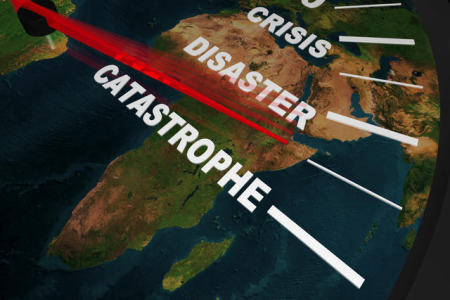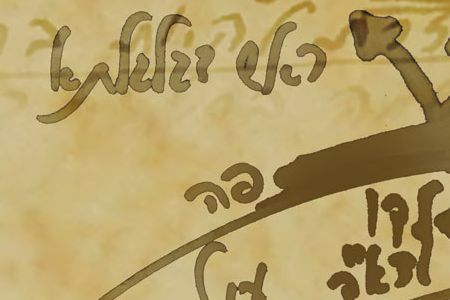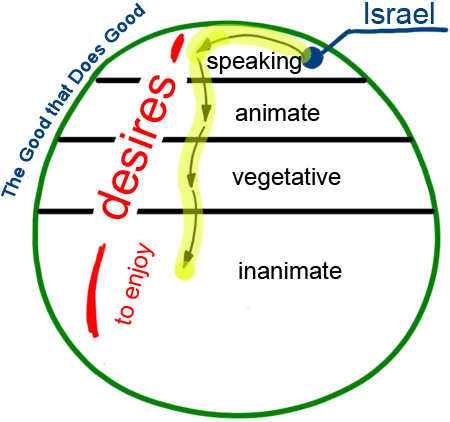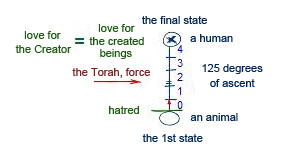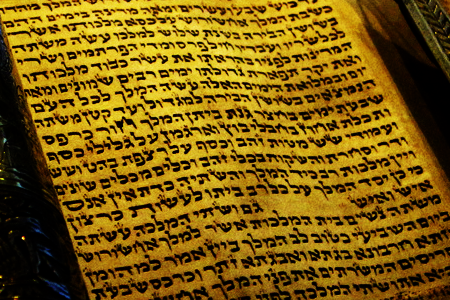
Purim is the holiday of opposites, which connects between happiness and despair, concealment and revelation, Mordechai and Haman, exile and redemption.
Purim (which stems from the word “Pur” [“lot”]) is the ideal spiritual situation, the final correction (Gmar Tikkun). It is a state where a person’s desires are corrected with the intention in order to bestow, and one becomes united with all desires, thus filling one’s desire with the Creator’s revelation (i.e. the revelation of the quality of bestowal and love that connects among all desires).
Table of Contents:
- What Is the Spiritual Meaning of Purim?
- The Story of Purim
- What Is the Difference between Mordechai’s and Haman’s Approaches?
- What Does it Mean that the People of Israel Unite and Give Esther the Power to Address the King?
- The Meaning of Mordechai Getting Honored by the King?
- Why Is it Customary to Wear Masks & Costumes During Purim, to Eat Cookies called “Haman’s Pockets” and to Get Drunk?
What Is the Spiritual Meaning of Purim?
Megillat Esther (The Book of Esther) describes forces that unfold in the person. These forces are what a person attaining spirituality discovers in connection with the Creator. They manage everything taking place in everyone’s lives, and have been given the names Mordechai, Esther, Haman, as well as many others.
The story of Purim unfolds before the construction of the Second Temple, soon before the Aliyah (ascent) to the land of Israel. It depicts the final battle before the final correction (Gmar Tikkun). At this stage, the people of Israel, the innermost desire within the person that aspires to spirituality, live calmly and peacefully in the kingdom of Achashverosh.
Mordechai, the spiritual desire that wants only to adhere to the Creator (the quality of bestowal and love), lived happily and the kingdom was at peace.
The people of Israel represent the majority of the desires that want to go straight to the world’s leader to learn the law of the universe (the word “Israel” comes from the words “Yashar Kel” [“straight to God”]).
Indeed, in the beginning of the story, the narrative suggests that there is something wrong: “There is one nation that is scattered among the nations.” This passage can also be read as “There is one desire that is scattered among the desires.” It is this nation, Israel, the desire for spirituality (a desire of bestowal and love), that is supposed to be united against all other nations, which are desires for self-gratification. The strength of the desire for spirituality (Israel) comes only from its unity, so when it is dispersed, it signifies that the person has not yet fulfilled his destiny, for only the people of Israel (the united desire for bestowal and love above all other desires) can lead the other nations (all other desires for self-gratification) to the common goal, adhesion with the Creator.
The evil Haman, who represents the egoistic desires in the person, wants to exploit the situation for personal gain. He eventually wants to overthrow the king from his throne. Haman believes that the fact that the people of Israel, the Jews, are dispersed testifies to their weakness, confusion and lack of faith. Therefore, he finds the situation to be a rare opportunity to eliminate the Jews from the face of the earth, as they are the sole force that stands between him and exploiting the Creator.
What Haman fails to understand, however, is that the Jews are dispersed for a reason: The Jews’ dispersion (i.e. the dispersion of the small amount of spiritual desires among the large amount of egoistic desires) is in order for all desires to acquire the form of bestowal and love, i.e. that spiritual unity comes in integration and perfect balance with all desires, and not in separation to them. Indeed, we will see the truth of it when at the end of the story, all people reform. The meaning is that all the desires in the person, called “people,” accept the spiritual desires that leads to confidence and happiness, called “Israel.”
The Israel in a person (the altruistic part) is limited. That limitation can only be overcome by the evil Haman. That is why we need to find the Haman (the egoistic part) within us.
The Story of Purim
The beginning of the story depicts how Mordechai saved the king from the two assassins Bigtan and Teresh. Naturally, we would expect the king to pay him for his deed, perhaps give him a raise, or any other kind of reward.
